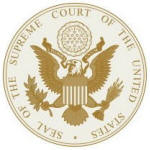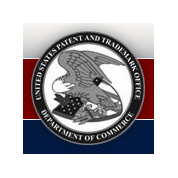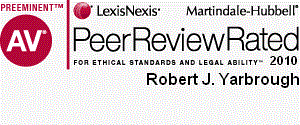Newsletter Issue 16 - June, 2010
In this issue:
Supreme Court Decides Bilski.
Supreme Court sends a message to employees.
Can I donate a copyright?.
PTO considers multiple patent review tracks.
Internships: It's not just another free employee.
Supreme Court Decides Bilski
by: Robert J. Yarbrough
 June
28, 2010 -- In an a unanimous opinion on the result, though
fractured on the reasoning, the Supreme Court issued its
long-awaited decision today on patentable subject matter. The
Bilski
v Kappos decision is important for inventors and owners of software,
Internet and particularly business method patents.
June
28, 2010 -- In an a unanimous opinion on the result, though
fractured on the reasoning, the Supreme Court issued its
long-awaited decision today on patentable subject matter. The
Bilski
v Kappos decision is important for inventors and owners of software,
Internet and particularly business method patents.
Under the law, even if an invention is novel, un-obvious, has utility, and meets all of the technical requirements for a patent, a patent cannot issue unless the invention addresses patentable subject matter. Patentable subject matter includes "any new and useful process, machine, manufacture, or composition of matter...." The concept is very broad and under Supreme Court precedent includes "everything under the sun made by man" EXCEPT laws of nature, physical phenomena and abstract ideas.
The Bilski case involved whether a business method was the proper subject for patent protection. The Bilski method was for hedging risk relating to the energy supply business. The Federal Circuit Court of Appeals, which was the lower court, held that the Bilski method was not patentable subject matter since it was not tied to any particular machine and did not transform an article into another state or thing. The Federal Circuit further held that this "machine or transformation" test was the exclusive test to determine whether a method can be patentable subject matter.
The Supreme Court affirmed the Federal Circuit's determination that the Bilski hedging method is unpatentable, but rejected the reasons given by the Federal Circuit. The Supreme Court expressly held that the "machine or transformation" test is not the only way to determine that a method is patentable subject matter and is instead only 'the clue' to be considered. The Court did not flesh out what other 'clues' might point to whether a method addresses patentable subject matter.
The Supreme Court also held that business methods are not categorically excluded from patent protection, declining to read non-existent limitations into the patent statute. The Court noted the uncertainty as to how the term 'business method' is defined and the unintended consequences that such a categorical exclusion likely would have.
The Court concluded that the Bilski invention was not patentable since it attempted to patent a prohibited abstract idea under Supreme Court precedent. The decision creates hope, but also substantial uncertainty, for inventors of business methods and owners of business method patents.
The United States Supreme Court Sends a Message
by: Adam Garson
 An
employer's right to monitor employees' electronic communications in
the workplace is fairly well settled, particularly when the employer
provides its employees with the equipment and has express policies
on computer and Internet usage. In
City of Ontario v. Quon, the
United States Supreme Court has finally added to the growing body of
law on this subject.
An
employer's right to monitor employees' electronic communications in
the workplace is fairly well settled, particularly when the employer
provides its employees with the equipment and has express policies
on computer and Internet usage. In
City of Ontario v. Quon, the
United States Supreme Court has finally added to the growing body of
law on this subject.
In Quon, the employer was a governmental body, the City of Ontario, California, police department (OPD) and the employee, was a police officer. In 2002, the OPD distributed alphanumeric pagers to 20 of its personnel. All employees signed a "Computer Usage, Internet and E-Mail Policy," which expressly stated that the OPD had a right to monitor and audit employee's Internet use with or without notice. Each pager was allotted a monthly quota of incoming and outgoing characters. Police officers were told that text messages should be treated like e-mail and that they could be audited. One of the police officers, Jeff Quon, exceeded his monthly quota several times.
In an effort to evaluate the message quotas, Quon's superiors audited his messages to determine the relative amounts of personal and work-related messages. They discovered that very few were work related, most were personal, and some were sexually explicit. As a result, Quon was reprimanded and he sued the OPD for violation of his Fourth Amendment rights. The District Court and the Circuit Court of Appeals held that the audit amounted to an unreasonable search and seizure so the City of Ontario appealed to the Supreme Court, which reversed.
In short, the Supreme Court held that although the Fourth Amendment applied to employees as it does to other citizens, there are exceptions for "noninvestigatory, work-related purpose" or for the "investigation of work-related conduct." O'Connor v. Ortega, 480 U.S. 479. The Court wrote that the OPD's audit and scope were reasonable with a "legitimate work related purpose." The Court was persuaded by the fact that Quon was told his messages might be audited and that as a law officer he should have known his actions might be scrutinized.
Although narrowly tailored to the governmental workplace, the Quon decision once again reminds employees that their privacy expectations in the workplace may not be what they believe and that employers' actions may be deemed reasonable so long as the rules are known to the employees. If you are an employer, remember to include Internet and computer usage policies in your employee handbooks. If you would like guidance, Lipton, Weinberger & Husick can help.
 Ask
Dr. Copyright...
Ask
Dr. Copyright...
by: Lawrence A. Husick
Dear Dr. ©:
I'd like to make a donation to a charity, such as my college. I have
some copyrights. May I donate them and take a tax deduction?
Sincerely,
Copyright Cheapskate
Dear Cheap:
First, the answer is Yes, you may donate a copyright to your
college. Since copyrights last a very long time (if it's your
personal creation, it will last until seventy years after your
demise) this kind of donation may be the gift that keeps on giving.
To donate a copyright, it's wise to first register the copyright
with the United States Copyright Office (www.copyright.gov) and then
draft an assignment or deed of gift (some colleges have forms for
this, but many do not) and record it in the copyright office. Both
the registration and recordation require payment of a small fee (of
course...what self-respecting government agency does things for
free?)
When you donate your copyright, you're giving the donee the right to receive income from the property. A few famous copyrights have been donated and have benefited their institutional owners. For instance, J.M Barrie donated Peter Pan to the Great Ormond Street Children's Hospital in London. It turned out to be worth millions of dollars. Irving Berlin donated the copyright to God Bless America to the Boy and Girl Scouts. Again, millions!
As for the tax deduction, since the "Doc" is not a tax attorney, he recommends that you consult one, or an accounting professional. But (and there is always a "but") if you're the creator of the copyright, your deduction will be limited to your "actual cost basis", not the fair market value.
According to the Internal Revenue Code, Section 1221(3) explicitly provides that artistic property is not a capital asset and, thus, not entitled to long-term capital gain treatment (and thus, a deduction at fair market value.) Although Section 1221 of the Code defines a capital asset as "property held by the taxpayer (whether or not connected with his trade or business); Section 1221(3) excludes from the term "capital asset"-- "a copyright, a literary, musical or- artistic composition, a letter or memorandum, or similar property, held by -- (A) a taxpayer whose personal efforts created such property, (B) in the case of a letter, memorandum, or similar property, a taxpayer for whom such property was prepared or produced, or (C) a taxpayer in whose hands the basis of such property is determined, for purposes of determining gain from a sale or exchange, in whole or part by reference to the basis of such property in the hands of a taxpayer described in subparagraph (A) or (B)."
What does this mean? Unless you're a publisher acquiring rights from others that you then donate, you may not get much of a tax deduction at all!
So, if you have copyrights just sitting around, consider giving them away, even if you can't get a tax windfall. Your alma mater may thank you.
PTO Considers Multiple Review Tracks for Patent Applications
by: Robert J. Yarbrough
 The
delay between the filing of a utility patent application to the
first office action by the PTO averages almost
three years. The
PTO is considering whether to offer multiple
options for patent application review in an effort to reduce the
delay. The proposal would allow the applicant to select fast, medium
or slow review. For the fast option, the patent applicant would pay
higher fees in return for expedited review. The medium option is the
current system. The slow option would allow an applicant to pay a
lower fee and postpone examination for up to 30 months, which is
equivalent to the current
deferred examination.
The
delay between the filing of a utility patent application to the
first office action by the PTO averages almost
three years. The
PTO is considering whether to offer multiple
options for patent application review in an effort to reduce the
delay. The proposal would allow the applicant to select fast, medium
or slow review. For the fast option, the patent applicant would pay
higher fees in return for expedited review. The medium option is the
current system. The slow option would allow an applicant to pay a
lower fee and postpone examination for up to 30 months, which is
equivalent to the current
deferred examination.
The PTO also proposes to delay examination of applications claiming foreign priority, which comprise approximately 40% of U.S. patent filings. The PTO would not review the application claiming foreign priority until the first office action by the foreign patent office and the applicant's response. This requirement would instantly incorporate deferred examination (at least insofar as foreign inventors are concerned), and off-load at least the initial review to the foreign patent office. The proposal is not as xenophobic as it first appears - a foreign inventor can avoid the result by filing first with the United States PTO or otherwise eliminating claims of foreign priority. The PTO reports that Japan and the European Patent Office already give priority to local applications.
We believe that more choices available to an applicant are a good thing; however, the proposal may present a significant danger to the fairness of the U.S. patent system. Depending on its cost, expedited review may create a patent class system and small companies and independent inventors with limited resources may become second class citizens. The patent applications of those second-class citizens may languish while the PTO expends its resources on expedited reviews for wealthier, more lucrative customers.
The proposal is not final and the PTO is accepting public comment.
Internships: It's Not Just Another Free Employee.
by: Lawrence A. Husick
With the economy slow to recover, many firms, both for-profit and not-for-profit are offering summer internships, rather than paid positions. Sounds good, right? The employer gets free labor, and the intern gets experience and resume enhancement. What could be better? Well, it turns out that paying a fair wage could be better because both federal and state laws prevent unfair labor practices that include much of what many interns face.
So, what are the general laws outlined by the U.S. Department of Labor's Wage and Hour Division regulating unpaid internships? The following six criteria must all be met in order for companies to lawfully offer unpaid internships:
1. The training, even though it includes actual operation of the
facilities of the employer, is similar to that which would be given
in a vocational school or similar institution;
2. The training is for the benefit of the trainee;
3. The trainees do not displace regular employees, but work under
close observation, instruction and supervision;
4. The employer that provides the training derives no immediate
advantage from the activities of the trainees and on occasion the
employer's operations may actually be impeded;
5. The trainees are not necessarily entitled to a job at the
completion of the training period; and
6. The employer and the trainee understand the trainees are not
entitled to wages for the time spent in training.
The federal and state labor departments may inspect a company's operations for compliance. Interns who feel wronged may also file for back pay and penalties, even if they agreed in writing to work for nothing. In the end, it may be better and cheaper simply to pay interns, rather than lawyers! To find out more about the Fair Labor Standards Act (FLSA) and other laws that apply to interns and work-based training, you may visit the U.S. Department of Labor's Wage and Hour Division web site or call WHD's toll-free helpline at (866) 4US-WAGE, (866-487-9243).

